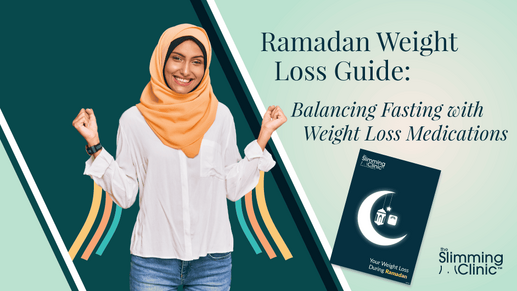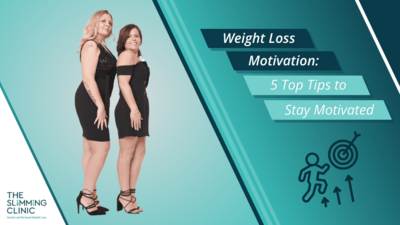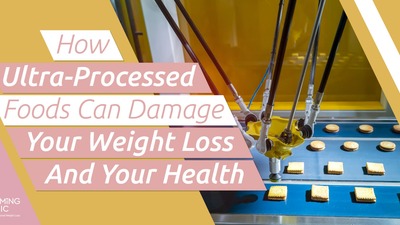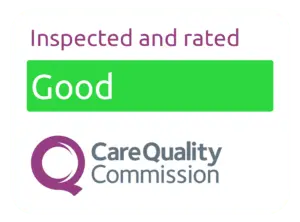5 Reasons Why You Might Be Struggling To Lose Weight
When you begin aweight loss programme, you set out with the best intentions.
You are motivated, determined and your willpower is strong – it must be to have started your weight loss journey!
Usually, you will see excellent weight loss results in the first few weeks of a weight loss diet, as your body adjusts to the healthy changes you have implemented in your lifestyle.
So, when your weight loss slows or stops, do you ever consider the reason? Or do you just give up, thinking, ‘I just can’t lose weight no matter what!’
In our new blog, The Slimming Clinic looks at 5 reasons why you might be struggling to lose weight and how you can overcome those reasons!
You’re eating too much, or you’re eating mindlessly
This one might seem obvious, but when we first begin a weight loss diet, we are really good at measuring, counting calories and making sure we’re not over-eating.
However, as you get more comfortable with your weight loss diet, you might stop counting and measuring and start eating and cooking by eye.
You might *think* you’re only eating 75g pasta with dinner, but without measuring, how can you be sure?
And what about that little chunk of cheese you ate whilst you were cooking dinner last night?
If your weight loss has slowed, or come to a halt, take time to write down everything you are eating, over the course of a couple of days.
Measure your food and track your calories, you might be surprised to find you are over-eating!
Also consider everything you eat. Before you eat something, think to yourself – ‘Am I hungry? Do I really need this?’
If you need more support, you can try our FREE portion size guide, that has everything you need to know about portion control!
[button link="https://theslimmingclinic.com/portionguide/" type="big" color="teal" newwindow="yes"] Portion Size Guide[/button]
Calories are too low
This one is a little bit unusual, but it could be that you are eating too little on your diet plan for weight loss!
Whilst a modest calorie deficit is important for a weight loss diet, if you under-fuel your body, it holds onto a lot more fat, as it could be going into starvation mode.
When your body enters starvation mode, your metabolism slows and as such, it is a lot harder to lose weight.
Remember, calories are not your enemy and eating too few is not the best way to lose weight! Your body needs a certain number of calories to function properly.
When considering your calorie intake, it should be adjusted only as low as to support you losing about 1-2lbs a week. This will mean your calorie intake will vary based on you, your lifestyle and your metabolism.
To find out how many calories you should eat on your weight loss diet, you can use a Total Daily Energy Expenditure (TDEE) calculator, like this one:
[button link="https://tdeecalculator.net/" type="big" color="pink" newwindow="yes"] TDEE Calculator[/button]
Not getting enough sleep
How often have you had a bad night’s sleep and the next day, eaten everything in sight just to comfort yourself?
When we’re tired, we make much poorer food decisions and find ourselves straying away from our weight loss programme in search of unhealthier, convenience foods.
However, whilst these foods might bring a small amount of comfort when we’re lacking in the ZZZs, they won’t be doing our healthy lifestyle any good at all!
In fact, they often provide a quick spike in energy, then an even bigger come down in energy and leave us feeling lethargic.
So whilst we can’t predict when we’re going to have a sleepless night, we can be prepared, just in case that occurs.
Why not prep some of your favourite weight loss diet meals and have them in the freezer ready to eat when you feel the need for convenience food?
Or, make a meal plan at the beginning of the week that you know you have to stick to!
If you want more advice about how sleep can affect your weight loss, you can read our past blog on the subject!
[button link="https://theslimmingclinic.com/blog/can-better-sleep-help-you-lose-weight/" type="big" color="orange" newwindow="yes"] Can Sleep Help You Lose Weight?[/button]
Not Moving enough
If you’re a sedentary person, who works at a desk all day, or someone who finds themselves seated for long periods of the day, it might be time to look at introducing some exercise for weight loss.
If you are finding that you really can’t lose weight, despite having a good diet plan for weight loss, it could be that adding in some simple, easy movement to your day could really help!
By exercise, we don’t mean anything super strenuous either. It could be something as small as a 30-minute walk at lunchtime or yoga class.
If you’re already exercising, but not strenuously, maybe it is time to up the intensity? Try something a little more heart-pumping like a HIIT session, swimming or spinning at the gym.
Whilst it is possible to lose weight without exercise, adding it in could also see you speed up your efforts too!
Read more about weight loss without exercise with our past blog!
[button link="https://theslimmingclinic.com/blog/is-it-possible-to-lose-weight-without-exercise/" type="big" color="green" newwindow="yes"] Is It Possible To Lose Weight Without Exercise?[/button]
Not drinking enough water
Water is so important when you are trying to lose weight!
Whilst it doesn’t hold any nutritional qualities, we all know that water is essential for our health and, in turn, our weight loss diet.
As adults, we should be drinking about 8 glasses – 2 litres – of water a day to be fully hydrated.
Water supports your diet for weight loss as it improves digestion and can decrease your appetite – a natural appetite suppressant!
If you’re feeling hungrier recently, or just can’t stop snacking, try drinking a glass of water when those feelings arise and seeing if it reduces your cravings and hunger pangs.
In Summary
We know that a weight loss diet isn’t always easy, and there are many reasons it can come to a standstill.
What is important though, is when your weight loss does slow or stop, if how you react.
Do you give up completely and allow yourself to gain weight again, or, do you try something new to continue your weight loss success?
At The Slimming Clinic, we have years of experience in this area and our expert weight loss doctors can not only help you get to the bottom of the reason you are not losing weight, but will also help you overcome it.
Our medical weight loss programmes ensure that you are able to not only lose weight and reach your weight loss goals, but also ensure you don’t gain it back!

Nutrition and Hydration Week: How Food & Hydration Aid Weight Loss

How Sleep Affects Weight Loss – World Sleep Day 2025

Ramadan Weight Loss Guide: Balancing Fasting with Weight Loss Medications

12 Christmas Weight Loss Tips

Weight Loss Motivation: Stay Inspired to Achieve Your Goals

How Ultra-Processed Foods Can Damage Your Weight Loss And Your Health
Looking to start your weight loss journey, then take action today!
Book an appointment with one of our GMC-Registered Doctors who are weight loss experts and can ensure you get the best programme for you. Alternatively request your medication online using our online prescription service.


